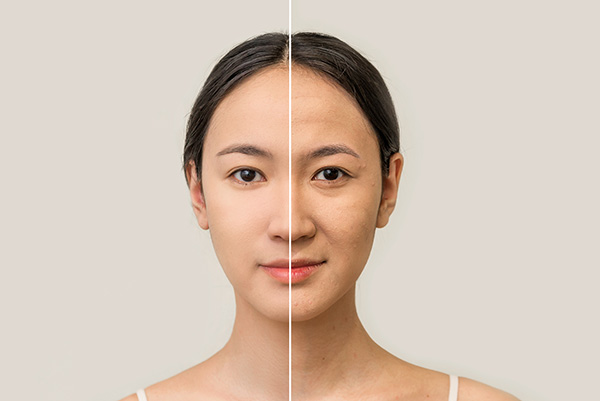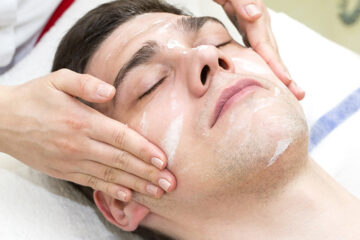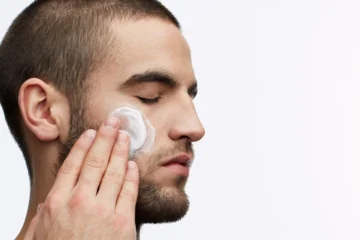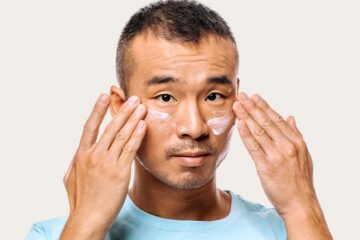Taking good care of your skin doesn’t have to be complicated or time-consuming. For many women, achieving healthy, glowing skin is a top priority, but figuring out the best skincare routine can be challenging. Whether you’re just starting or looking to enhance your current regimen, understanding the importance of both morning and night skincare routines is essential. This blog post will guide you through everything you need to know about creating an effective skincare routine that suits your lifestyle and skin needs.
Why Skincare Routines Matter
Your skin is your body’s largest organ and acts as a barrier against harmful environmental factors. Proper skincare routines help maintain this barrier, ensuring your skin stays hydrated, healthy, and glowing. Skincare routines are not just about beauty, they are crucial for your skin’s overall health.
By incorporating consistent morning and night routines, you can address common skincare issues such as dryness, acne, and premature aging. A well-thought-out regimen ensures your skin gets the care it needs at different times of the day.
Morning Skincare Routine
A morning skincare routine sets the tone for your day and prepares your skin to face environmental aggressors. Start by cleansing your face to remove any impurities that may have accumulated overnight. Follow this with a gentle exfoliant, which helps to slough off dead skin cells and promote a fresh complexion. Next, apply a toner that balances your skin’s pH levels and hydrates it, then layer on a lightweight moisturiser to lock in moisture. Don’t forget the importance of sun protection; applying a broad-spectrum sunscreen is crucial to shield your skin from harmful UV rays, preventing sun damage and premature aging. Tailoring these steps to your skin type can maximize the benefits, leaving you with a radiant and protected complexion every morning.
Night Skincare Routine
As the day winds down, your night skincare routine should focus on repair and rejuvenation. Begin by thoroughly cleansing your face to remove makeup, dirt, and impurities. This step is essential, as it allows your skin to breathe and repair itself while you sleep. After cleansing, incorporate a more intensive exfoliant or treatment serum that addresses specific skin concerns—such as retinol for anti-aging or salicylic acid for acne-prone skin. Follow up with a nourishing night cream or oil that hydrates and helps restore your skin’s barrier while you sleep. This is when your skin is most receptive to treatments, making it the ideal time to give it the extra love and care it deserves. Implementing these practices consistently can lead to visibly healthier skin over time.
The Science Behind Morning and Night Routines
Morning skincare focuses on protection, while night routines emphasize repair and rejuvenation. During the day, your skin faces exposure to UV rays, pollution, and other environmental stressors. At night, your skin undergoes a natural repair process, making it the perfect time to use products that support regeneration and healing.
Morning Skincare Routine for Radiant Skin
Starting your day with a proper skincare routine can set the tone for healthy skin. Here’s a detailed breakdown of a recommended morning regimen:
Cleansing
Begin your morning routine by cleansing your face with a gentle cleanser. This step removes any impurities and excess oils that may have accumulated overnight. Opt for a sulfate-free cleanser to avoid stripping your skin of its natural oils.
Toning
After cleansing, use a toner to balance your skin’s pH levels and prepare it for the next steps. A toner can help tighten pores and remove any leftover residue from your cleanser. Look for toners with hydrating ingredients like hyaluronic acid or calming components like chamomile.
Serum
Serums are concentrated formulations designed to target specific skin concerns. In the morning, consider using a vitamin C serum to brighten your complexion and provide antioxidant protection against environmental damage. This step can make a noticeable difference in your skin’s texture and tone.
Moisturizing
A good moisturizer is essential to keep your skin hydrated throughout the day. Choose a lightweight, non-comedogenic moisturizer that won’t clog your pores. For added benefits, opt for a product that contains SPF to protect your skin from harmful UV rays.
Sunscreen
Never skip sunscreen! Applying a broad-spectrum SPF of at least 30 is crucial to protect your skin from UV damage, which can lead to premature aging and increased risk of skin cancer. Reapply sunscreen every two hours if you are outdoors.
Night Skincare Routine for Ultimate Repair
The night is the perfect time for your skin to repair and rejuvenate. Here’s how to build an effective night skincare routine:
Makeup Removal
If you wear makeup, the first step in your night routine should be thoroughly removing it. Use a gentle makeup remover or cleansing oil to break down makeup and cleanse your skin without causing irritation.
Cleansing
Follow up with a gentle cleanser to remove any remaining impurities. Double cleansing ensures that your skin is completely clean and ready to absorb the following products more effectively.
Exfoliation
Exfoliating 2-3 times a week helps remove dead skin cells and promotes cell turnover. Choose a gentle exfoliant that suits your skin type, whether it’s a physical scrub or a chemical exfoliant with AHAs or BHAs.
Toning
Just like in the morning, use a toner to balance your skin’s pH levels and prepare it for the next steps. Nighttime toners can also contain ingredients like glycolic acid to promote cell renewal.
Serum
At night, opt for serums that focus on repair and hydration. Ingredients like hyaluronic acid, retinol, and peptides work wonders while you sleep, addressing concerns like fine lines, wrinkles, and uneven skin tone.
Moisturizing
Night creams are typically richer and more nourishing than daytime moisturizers. Look for products with ingredients like ceramides and niacinamide to lock in moisture and support your skin’s barrier function.
Treatment Masks
Consider incorporating treatment masks into your routine once or twice a week for an extra boost of hydration or targeted treatment. Sheet masks, clay masks, and overnight masks can address various skin concerns and complement your nightly regimen.
Additional Tips for Skincare Success
To further enhance your skincare journey, consider the following tips that can complement your established routines.
Consistency is Key
One of the most crucial elements of any skincare regimen is consistency. Using products regularly and following your routines daily can drastically improve your skin’s appearance over time. Aim to establish a set schedule for both morning and night routines to cultivate good habits.
Patch Testing
Before introducing new products, especially those with active ingredients like retinol or acids, conduct a patch test. Apply a small amount on a discreet area of your skin to check for any adverse reactions. This precaution can help prevent irritation and ensure that your skin tolerates new formulations well.
Stay Hydrated and Maintain a Balanced Diet
Healthy skin starts from within. Drinking adequate water and maintaining a balanced diet rich in vitamins, minerals, and antioxidants can have a positive impact on your skin’s health. Foods high in omega-3 fatty acids, such as fish and nuts, along with lots of fruits and vegetables, can provide essential nutrients that support skin vitality.
Adjusting to Season Changes
Your skincare needs may change with the seasons. During colder months, you might need to switch to a richer moisturizer to combat dryness, while summer may call for lighter, more breathable products. Be attentive to your skin’s condition and adapt your routine accordingly.
Consult a Dermatologist
If you’re facing persistent skin concerns or considering new treatments, consulting a dermatologist can provide tailored advice. Professional guidance can help identify skin types and issues, recommending products and treatments suited specifically to your needs.
By integrating these additional practices into your skincare approach, you’ll be better equipped to achieve glowing, healthy skin year-round.
Understanding Your Skin Type
Knowing your skin type is crucial for tailoring your skincare routine to meet your specific needs. Here’s a quick overview of different skin types and how to identify them:
Normal Skin
Normal skin has a balanced moisture and oil production, with minimal imperfections. It feels neither too dry nor too oily and generally has a smooth texture.
Dry Skin
Dry skin lacks sufficient moisture, often feeling tight and flaky. It may appear dull and rough, especially during colder months or in dry climates.
Oily Skin
Oily skin produces excess sebum, leading to a shiny complexion and larger pores. It is prone to acne and blackheads.
Combination Skin
Combination skin features both dry and oily areas, typically with an oily T-zone (forehead, nose, and chin) and dry cheeks.
Sensitive Skin
Sensitive skin is easily irritated and may react to certain products or environmental factors. It often appears red and feels itchy or burning.
Personalized Skincare Routines
Creating a personalized skincare routine ensures that your skin gets the care it needs. Here are some tips to help you personalize your regimen:
Assess Your Skin Needs
Identify your primary skin concerns, such as acne, dryness, or signs of aging. Your skincare routine should address these issues with targeted products.
Consistency is Key
Stick to your routine consistently for at least a few weeks before expecting noticeable results. Consistency helps your skin adapt to new products and allows you to track progress effectively.
Gradual Introduction
When introducing new products, do so gradually. Start with one new product at a time and monitor how your skin reacts. This approach reduces the risk of irritation and helps you identify any potential triggers.
Success Stories That Inspire
Success stories can be incredibly motivating and provide valuable insights. Here are some real-life examples of skincare transformations:
Case Study 1
A woman who switched from an irregular skincare routine to a consistent morning and night regimen saw remarkable improvements in her skin texture and reduced blemishes within three months. Her dedication to double cleansing, using serums, and applying sunscreen daily made a significant difference.
Case Study 2
Testimonials from women of different ages and skin types highlight the benefits of personalized skincare routines. One 40-year-old woman reported fewer fine lines and a more even skin tone after incorporating retinol and hydrating serums into her nightly routine.
Case Study 3
A beauty blogger shared her morning vs. night skincare routine with her readers, leading to a significant increase in engagement and positive feedback. Her followers appreciated her detailed explanations and product recommendations, inspiring many to revamp their own routines.
The Perfect Conclusion
Both morning and night skincare routines play vital roles in maintaining healthy, glowing skin. By understanding your skin type and personalizing your regimen, you can address specific concerns and achieve your skincare goals. Remember, consistency is key, and the gradual introduction of new products ensures that your skin adapts smoothly.
We encourage you to assess your own skin needs and develop a routine that works for you. Share your skincare journey with us and inspire others to take charge of their skin health. If you need more guidance, our articles on Morning Skincare Routines, Understanding Your Skin Type, and Personalized Skincare Routines provide additional insights and tips.
Your skin is worth the effort, and with the right routine, you can achieve the radiant, healthy complexion you desire. Happy skincare!





